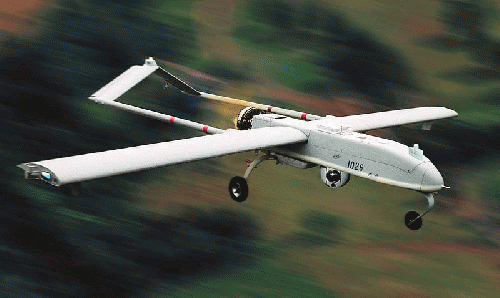Yesterday's edition of The New York Times published an article called "The Moral Case for Drones." It was authored by one if its national security reporters, Scott Shane. As the title indicates, the piece's intention was to argue that U.S. drone policy is indeed morally defensible. However the article refused to address the really difficult moral issues. It concentrated instead on providing a rather obvious response to the question whether the use of drones avoids the wholesale slaughter of civilians that has been associated with modern warfare since the U.S. Civil War.
Of course it does! Is there anyone who would argue that carefully calibrated drone use would be worse than the direct targeting of civilians that occurred in Dresden, Hiroshima and Nagasaki? However by focusing on the "lesser of two evils" approach and resolving it in favor of drones, Mr. Shane's article leaves inattentive readers with the impression that drone policy is somehow moral and humane.
But what about those other questions?
For instance, nowhere in the article does Mr. Shane even gesture towards the basic moral issue (not to mention its constitutional counterpart) of whether or not the President of the United States actually possesses the authority to order extrajudicial assassinations by drone or any other means. If the President claims that authority, do we accord that same right to any head of state -- even if he or she decides that Mr. Obama himself is an international outlaw?
But that's not the only issue the Times article chooses to ignore. In fact, it begins by bracketing a whole host of moral questions about drone use. Mr. Shane opens by saying:
"For streamlined, unmanned aircraft, drones carry a lot of baggage these days, along with their Hellfire missiles. Some people find the very notion of killer robots deeply disturbing. Their lethal operations inside sovereign countries that are not at war with the United States raise contentious legal questions. They have become a radicalizing force in some Muslim countries. And proliferation will inevitably put them in the hands of odious regimes."
At the outset, then, the Times author mentions some of the real issues only to set them aside. What about remote control assassinations? What are the moral implications of human agents making life and death decisions safely sequestered in air conditioned locations thousands of miles from the kill zone? Does it make a moral difference that justification comes from questionable sources, or that such justification is frequently circumstantial, based on hearsay, and often amounts to guilt by association? Is it a moral issue that the executioners' decisions might be erroneously or casually made since they are immediately based on information provided by devices resembling video game screens?
Similarly removed from moral analysis is the fact that lethal operations inside sovereign countries not at war with the United States are not only "contentious" (as the article admits), but clearly contravene international law, not to mention the U.N. Charter. Is it possible to make a "moral case" in such a context? Wouldn't that be like waxing eloquent about the moral case for face-to-face Mafia hits rather than spraying restaurants with machine gun fire? Like their drone equivalents, such hits successfully avoid all that messy collateral damage. However both types of extra-judicial killings are the work of "professionals" who immorally place themselves above the law.
Moreover, in an essay that will make that argument that drones diminish civilian casualties, Mr. Shane's piece from the beginning chooses not to consider whether in the final tally, drones actually increase civilian casualties. Are the civilian deaths caused by such terrorists not to be calculated? Similarly what about the casualties caused by making drone technology available to those "odious regimes?" Their leaders find the United States similarly "odious." Will the civilian casualties they cause seem thankfully minor when representatives of those particular agents fly their drones into the Sears Tower in Chicago?
Choosing not to consider such questions is like asking Mrs. Lincoln, "Apart from the assassination, what did you think of the play?"
However such incomplete and inconsiderate "moral analysis" also leads to the conclusion that United States drone policy is (as one of the article's quoted experts says) "not only ethically permissible but might also be ethically obligatory because of their advantages in identifying targets and striking with precision."
It's the type of incomplete and deceptive moral analysis that would do Mafia ethicists proud.






